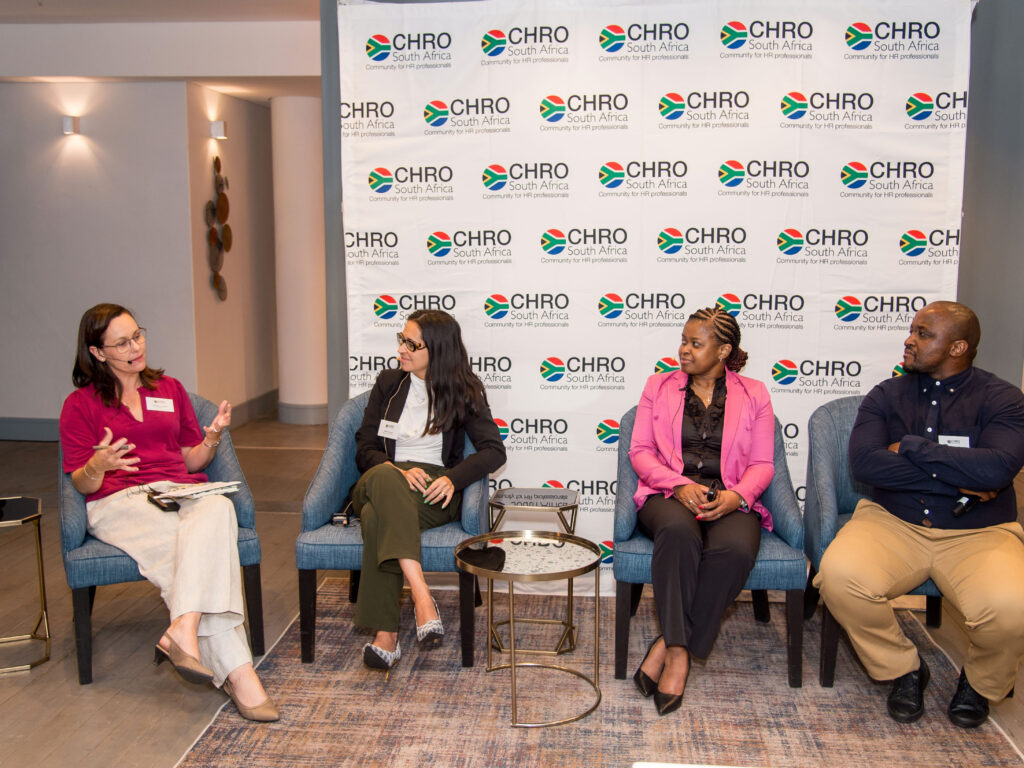Implementing technology in order to increase efficiency and productivity is not so clear-cut in the HR world, says the panel during the 2024 CHRO Smart Work Summit.
The implementation of new technology into businesses either through ERP systems or new processes has always been badly managed and more often than not there is a lack of implementation success.
These were the opening remarks of Bronwynne Bester, CPO at Oceana, who was one third of a discussion panel titled “The Productivity Paradox”. She was joined by Diana Johnson, area head of HR for sub-Saharan Africa at British American Tobacco, and Germinah Nyikana, HR director at Clicks.
The discussion was part of the annual CHRO Smart Work Summit held in Cape Town on 12 March.
![]()
According to Bronwynne, this has been her lived experience in HR where the change is not managed well: “In most cases HR does not manage the training and the development well. We also aren’t creating the gap between what we think we know and what we need to know with our new systems.”
Part of the problem, she said, is that HR teams don’t understand their workforce. “I think at its core, it’s a lack of understanding of our people and not understanding how to bring the system/s down to where the people are and what they need to do with the system/s.
“Honestly, people are afraid, and as a result push back and will fundamentally find a way around these new fancy systems. In all this, we need to realise that we need to fully ensure that the business is ready for the change; that they understand the changes that are required.”
She added that the changes have to be leader-led. “You cannot make HR people responsible for training people and how to use a new system.Remember, everything we do is actually not about us. It’s about our line leaders. That’s exactly where change management has to be.”
![]()
Human vs. tech
Diana agreed that one needs to be cognisant as to whether the business is ready for the change or not. She recalled a time when BAT introduced new machines in their factories, and the productivity was lower than before, because with the old outdated machines, employees knew how to fix any faults, but with the new ones, no one had a clue how to troubleshoot issues.
“When you look at the ROI of any project, regardless of whether it’s tech-based or not, the investment and productivity are not correlated because productivity is subjective. It varies from person to person, depending on their mental health, motivation, family situation as well as self-awareness.”
She adds that to avoid making false conclusions as a result of ROI measurement, leaders need to take into consideration the learning curve that comes with adapting to the new technologies.
“It’s also difficult to measure the learning curve. You can expect the learning curve to have happened in a particular period of time, and it won’t necessarily happen that way.”
![]()
This point resonated very strongly with Germinah, who said it is very important to acknowledge that there is no clear return on investments (ROI) in terms of the human element. “Unfortunately, the product we enable (humans) doesn’t lend itself to that.”
She concluded that even though there are matters that HR does that are linked to the performance of the business, it is not all black and white – there are nuances.
“Of course, there is so much work that we do that is measurable, and we all know what they are. We must also, however, acknowledge that any change or initiative that has a significant capital outlay attached to it tends to underperform in comparison to expectations. This can apply at the operations level, but also to HR initiatives such as L&D.”
![]()












